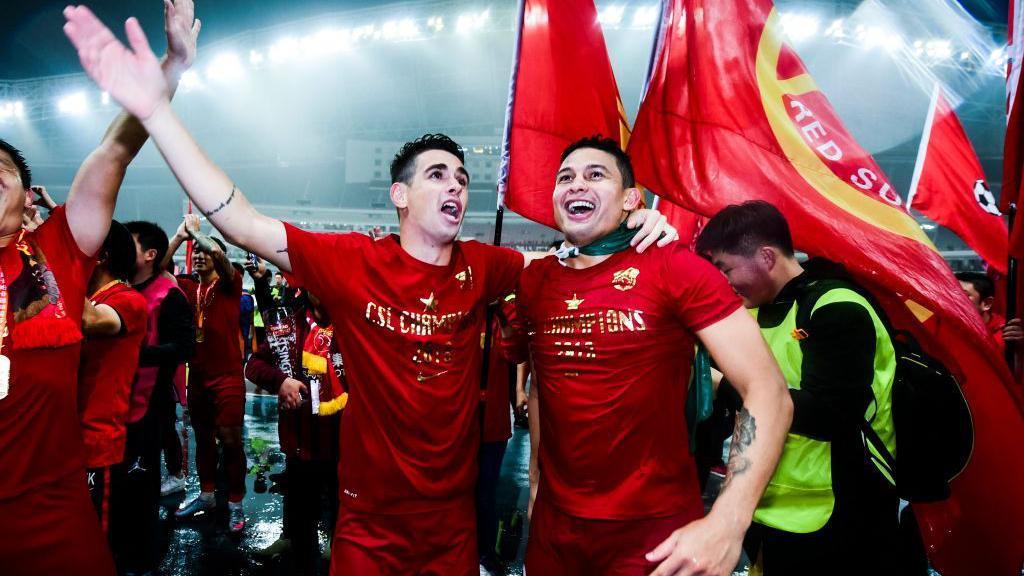News And PoliticsCommunications And EntertainmentSports And FitnessHealth And LifestyleOthersGeneralWorldnewsBusiness And MoneyNigerianewsRelationship And MarriageStories And PoemsArts And EducationScience And TechnologyCelebrityEntertainmentMotivationalsReligion And PrinciplesNewsFood And KitchenHealthPersonal Care And BeautyBusinessFamily And HolidaysSportsStoriesIT And Computer ScienceRelationshipsLawLifestyleComedyReligionLifetipsEducationMotivationAgriculturePoliticsAnnouncementUSMLE And MedicalsMoneyEngineeringPoemsSocial SciencesHistoryFoodGive AidBeautyMarriageQuestions And AnswersHobbies And HandiworksVehicles And MobilityTechnologyFamilyPrinciplesNatureQuotesFashionAdvertisementChildrenKitchenGive HelpArtsWomenSpiritualityQuestions AnsweredAnimalsHerbal MedicineSciencePersonal CareFitnessTravelSecurityOpinionMedicineHome RemedyMenReviewsHobbiesGiveawayHolidaysUsmleVehiclesHandiworksHalloweenQ&A
Top Recent
Loading...
You are not following any account(s)
dataDp/1032.jpeg
Worldnews

Coastal Warning Issued After Magnitude 6.7 Quake Hits Off New Zealand
~1.3 mins read
Thousand of people felt the quake in New Zealand with local media reporting buildings swaying and items falling from shelves. People living in coastal areas have been warned to get out of the water and move away from beaches after a strong 6.7 magnitude earthquake struck off New Zealand’s South Island, authorities said. Residents of the Southland and Fiordland regions should stay away from marine areas as strong and unusual currents may present a danger, the National Emergency Management Agency said after the earthquake on Tuesday. “People on boats, live-aboards and at marinas should leave their boats/vessels and move onto shore. Do not return to boats unless instructed by officials,” the agency said. More than 4,700 people felt the quake, government seismic monitor Geonet said, as New Zealand media reported items falling and buildings swaying. The quake was reported at a depth of 33km (21 miles) about 160km (99 miles) northwest of Snares Islands, the northernmost of New Zealand’s sub-Antarctic islands, Geonet said in an alert. We are assessing whether the M6.7 Southland earthquake has created a tsunami that could affect New Zealand. Go to https://t.co/ccVFYR8001 for more information. — National Emergency Management Agency (@NZcivildefence) March 25, 2025 “We had things fall off shelf. The outdoor wooden table dancing,” a user posted on Facebook, according to the New Zealand Herald newspaper. The United States Geological Survey said the quake, which was downgraded from an earlier magnitude of 7, happened at a depth of about 10 km (6 miles). Australia’s national weather bureau said there was no tsunami threat to the mainland, islands or territories. New Zealand lies on the seismically active “Ring of Fire”, a 40,000km (24,854-mile) arc of volcanoes and ocean trenches girdling much of the Pacific Ocean. Follow Al Jazeera English:...
Read this story on Aljazeera
profile/5377instablog.png.webp
Instablog9ja

Media Personality Daniel Regha Recounts How He Was Treated A A Supermarket By A Security Personnel Over His Fashion Drip
~2.9 mins read
profile/5377instablog.png.webp
Instablog9ja

APC Comot For Road, ADC Don Come, Dino Melayi Declares At The ADC Unveiling Event
~3.0 mins read
dataDp/3575.jpeg
Futbol

Ten Years On, Can China Still Meet Grand Football Plans?
~4.7 mins read
When China's president, Xi Jinping, visited Manchester in October 2015, there followed a bizarre photo opportunity and a bold statement. The former was an image of two global leaders - Xi and then UK Prime Minister David Cameron - posing alongside Manchester City striker Sergio Aguero. The unlikely selfie went viral on social media. The latter laid out a target that seemed much more likely for a nation of 1.4 billion people - and the football world took notice. In a written interview with the news agency Reuters, President Xi said he wanted China's national team to become "one of the best in the world". Six months after Xi's visit to the UK, the Chinese government launched a strategy that aimed to make the country a "world football superpower" by 2050. In the long term, the president wanted China to host and be competitive at the men's World Cup. By 2030, he wanted China to be one of the best teams in Asia. When the strategy was announced, China were 81st in the Fifa world rankings. Today, they sit 90th - wedged between New Zealand and the Caribbean island of Curacao. China's only appearance at a men's World Cup remains at the 2002 tournament in Japan and South Korea, where they were eliminated in the group stage. Should they lose to Saudi Arabia and Australia in this month's international break, it would almost certainly end their hopes of reaching the next edition in 2026. Despite that, some of Xi's aims are already taking shape - his strategy having been set out over three stages, spanning 34 years. One of them was to get tens of millions of young people playing the sport regularly. China's community football projects have indeed been hugely upscaled, with pitches now accessible all over the country. "This absolutely kicked into high gear from 2016 - football pitches were springing up everywhere," says Dr Mike Gow - an expert in contemporary China at Edge Hill University. "You're never more than about 10 minutes' walk from either a half-size or full-size all-weather pitch. The scale of it is quite impressive." But while access has improved, adopting a football culture similar to Europe and the UK is proving more challenging. In 2018, David Sproer was working as a coach in Cologne when he was presented with an opportunity to work for the Shanghai Football Association as a youth coach in the women's game. "It felt like a gold rush," he says. "It felt like things were really taking off, and that Chinese football could make huge steps towards a brighter future." Sproer left the country, along with many other European coaches, during the Covid-19 pandemic. He says he has no regrets about his time in China, but believes parts of his experience shone a light on why the country is so dominant in Olympic sports such as gymnastics, diving and table tennis but has struggled in football, where cohesion and communication play a more important role. "Chinese kids are educated and socialised a little differently from European kids," he says. "They grow up with an understanding that there is always a right and a wrong answer. "You have to be a little bit more versatile in football than, say, diving. It's not about perfection, it's also about creativity." The growth of the game among young people has also suffered as a result of the perception of football in the country. In December 2024, former Everton midfielder Li Tie was sentenced to 20 years in prison for fixing matches and accepting bribes. He had been China's men's national team coach from January 2020 to December 2021. The saga was the latest in a string of corruption cases that have blighted Chinese football over many years. According to Sproer, they have had an impact on the number of parents willing to volunteer to help in organising youth teams. "Kids are under enormous academic pressure. The parents are under pressure in their jobs," he says. "So there isn't much time to volunteer, and there is also not this culture of volunteering, because football in China in the professional leagues doesn't have the greatest image." Three months before Li Tie's sentencing, Chinese football had suffered a blow, with a 7-0 defeat by bitter rivals Japan in World Cup qualifying. "This is like England getting hammered by Germany," says Dr Gow. "Fans were angry, but they were more exasperated. Exasperated at the state of the game, and exasperated at the level of corruption in the game." When Xi set out his football plan in 2016, it led to a wave of investment from Chinese private investors in British and European clubs. The Chinese Super League (CSL) had its own resurgence, with wealthy owners pumping money into clubs to finance moves for players such as Oscar, from Chelsea, and Hulk from Zenit St Petersburg. Now, only two Chinese investors have overall control of professional clubs in England - the Fosun International Group at Wolverhampton Wanderers, and Dai Yongge, whose tenure at Reading has been beset by financial crises and successive points deductions. And clubs in the CSL are counting the cost of their transfer spending, with Guangzhou Evergrande, who won eight domestic titles and two Asian Champions Leagues between 2011 and 2019, forced into liquidation in January as a result of unpaid debts. "A lot of entrepreneurs used the China football strategy as a pretext to move money out of China," Dr Gow says. "It's very difficult to get your money out of China, so they seized on this opportunity that there was a national policy. "Fairly quickly, within a two- or three-year period, the authorities came along and said 'no, this is not what we want you to be doing,' so they kind of closed the door on that outward investment." With the presence of Chinese investors dwindling at European clubs, and with the men's national team still struggling to make inroads on the pitch, it is tempting to write off Xi's ambitions already. But those who've spent time in the country still feel the targets can be met by 2050, with China's results in younger age groups signalling some progress. "Never underestimate them," says Dr Gow. "When you have the Chinese Communist Party and the People's Republic of China, and they come out with a plan like this, they tend to deliver the objectives."
All thanks to BBC Sport
Loading...
 Worldnews
Worldnews
 Instablog9ja
Instablog9ja

 Futbol
Futbol